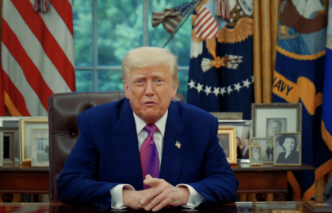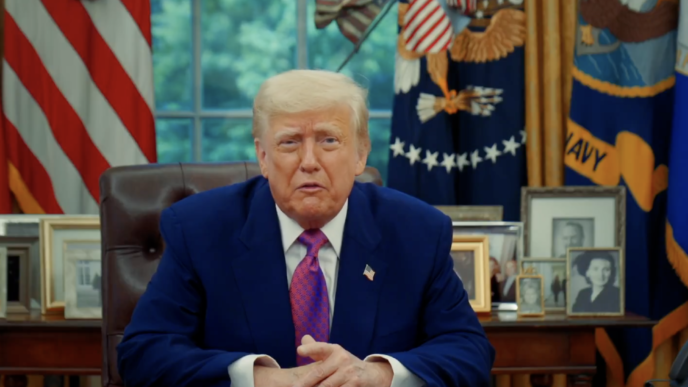Nnamdi Kanu
When Nnamdi Kanu, the now convicted leader of the proscribed separatist group, the Indigenous Peoples of Biafra (IPOB), renewed the agitation for the state of Biafra, the trajectory was always predictable. On Friday, November 21, 2025, when he was given a life sentence at the Federal High Court, Abuja, it merely confirmed the fate that has consistently awaited those who challenge Nigeria’s unity and territorial integrity. For those familiar with Nigeria’s contemporary political history since Independence, Nnamdi Kanu’s conviction and life imprisonment did not come as a rude shock. For many Nigerians, Kanu’s fate was the final chapter of a story that had been unravelling since he began openly calling for succession in 2016.
Once he toed the path of openly confronting the Nigerian state through speeches, broadcasts, mass rallies and actions that have been linked to unrest, violence and even deaths in the south-east, the end was clear to all. Nigeria’s contemporary political history has shown that anyone who challenges the country’s territorial integrity usually pays a heavy price. After his extraordinary rendition from Kenya and subsequent arraignment in 2015, his trial was based on very grave charges of instigating violence, encouraging attacks, and using broadcast messages on Radio Biafra to direct actions that endangered lives. The establishment of the Eastern Security Network (ESN), which was linked to violence and killings also highly mentioned during his trial and final judgement.
The court established that the speeches were not just political rhetoric but acts that encouraged violence. Under Nigerian law, they cross into treason — one of the most serious offences possible, which carries either death or life imprisonment. Once those charges stuck, the punishment was always going to be severe. Kanu also did not make the matter easy for his lawyers. During the trial, he sacked all the jurists who were representing him, choosing instead to defend himself. Those who had followed the case knew it was a wrong move.
Since he does not possess the required legal expertise to do so. Since his conviction, the reactions of Nigerians fits into a long history of how the Nigerian establishment responds to secessionist movements or threats to national unity. The Nigerian state, defined by the memory of the civil war fought between 1967 to 1970 and decades of political instability occasioned by long years of military rule defined by coups and countercoups that shook the very foundation of the country, views any attempt to break up the country as an existential threat. And in every major case, the response has been harsh.
Advertisement
In 1990, Major Gideon Orkar attempted a coup. In a broadcast, Orkar proposed the excision of some northern states from Nigeria. In his now famous radio broadcast Orkar had said “In the light of all the above and in recognition of the negativeness of the aforementioned aristocratic factor, the overall progress of the Nigerian state a temporary decision to excise the following states namely, Sokoto, Borno, Katsina, Kano and Bauchi states from the Federal Republic of Nigeria comes into effect immediately until the following conditions are met. But the coup failed, and Orkar and many of the plotters were executed. The military rulers at the time sent out a clear message: tampering with the country’s territorial structure was not acceptable nor tolerated. The case of Ken Saro-Wiwa and the Ogoni Nine in 1995 was another example.
Though the event was not entirely connected with treason, it nonetheless shows how far the Nigerian state can go when it believes the unity of the country is threatened. Saro-Wiwa’s activism was focused on environmental justice, yet the Abacha regime still convicted him on controversial charges and executed him and nine others, famously referred to as the Ogoni Nine. Many believe the government acted out of fear that the growing Niger Delta agitation could evolve into a stronger threat that could undermine Nigeria’s unity. In 1966, Isaac Adaka Boro declared the short-lived Niger Delta Republic. He was quickly arrested and sentenced to death for treason by the regime of Auguyi Ironsi. Though he later received a pardon from the Gowon regime because the government needed his support during the civil war, his case still demonstrated the state’s readiness to crush separatist movements.
With this background of Nigeria’s contemporary history, it becomes clear why Kanu’s case followed the same trajectory as the agitators before him. Nigeria remains a diverse and fragile federation. The civil war that nearly broke the country apart is still a powerful memory for many in government. In a Presidential chat when he was in power, the late President Buhari said no Nigerian who witnessed the Civil War would attempt to carry out any activity that would breach the country’s territorial integrity. His answer was in response to Kanu’s agitation for Biafra. He alluded to the fact that Kanu’s agitation was borne out of his not being born to experienced the Civil War.
Advertisement
The late president’s response is the reason why any movement that appears to revive secessionist sentiment immediately raises the fear that another crisis could follow. For that reason, the state has always used heavy punishment to deter future attempts. This is not to say the Nigerian government has always been fair. There have been many moments in history when its response was excessive, unjust, or politically motivated. The trial and execution of Saro-Wiwa is one of those painful examples. And there are grievances in the south-east as the region’s political leaders continue to decry what they allegedly call marginalisation, a major part of what fuelled Kanu’s agitation
But once a court finds that someone’s actions involved instigating violence or contributing to unrest, the legal path becomes straightforward. The Nigerian law views that as treason, and treason carries severe consequences. That is why Kanu’s sentence feels, to many observers, like an outcome that was written long ago- its precedent is etched in Nigeria’s political history.
And that is why, for Nnamdi Kanu, the life sentence was not a shock. It followed a long historical pattern – one that has claimed people before him, from Adaka Boro to Gideon Orkar to Ken Saro-Wiwa. His story simply became the latest chapter in Nigeria’s history of confronting those who challenge its unity.
Follow Bayo Olupohunda on X @BayoOlupohunda
Advertisement
Views expressed by contributors are strictly personal and not of TheCable.




